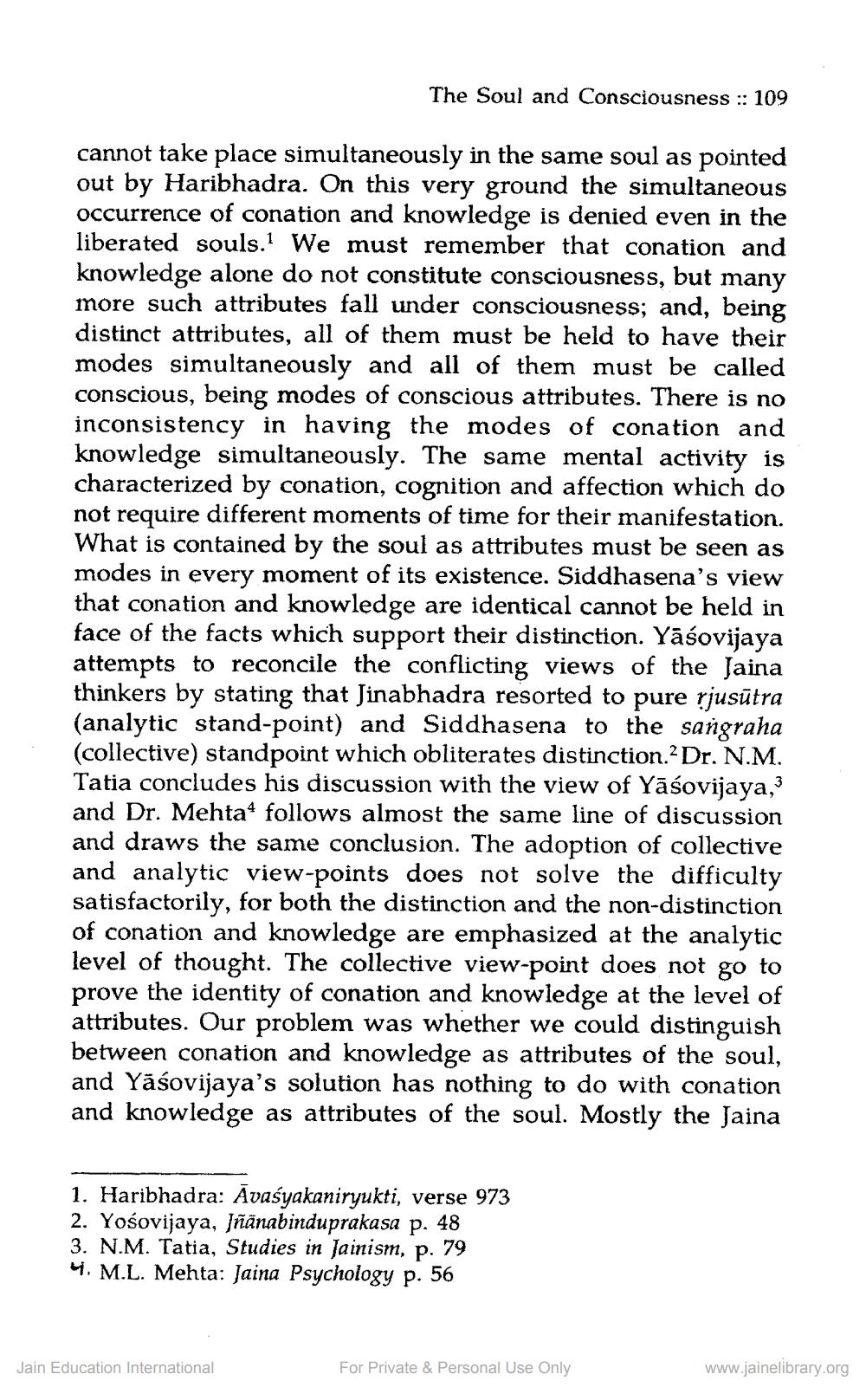________________
The Soul and Consciousness :: 109
cannot take place simultaneously in the same soul as pointed out by Haribhadra. On this very ground the simultaneous occurrence of conation and knowledge is denied even in the liberated souls. We must remember that conation and knowledge alone do not constitute consciousness, but many more such attributes fall under consciousness; and, being distinct attributes, all of them must be held to have their modes simultaneously and all of them must be called conscious, being modes of conscious attributes. There is no inconsistency in having the modes of conation and knowledge simultaneously. The same mental activity is characterized by conation, cognition and affection which do not require different moments of time for their manifestation. What is contained by the soul as attributes must be seen as modes in every moment of its existence. Siddhasena's view that conation and knowledge are identical cannot be held in face of the facts which support their distinction. Yāsovijaya attempts to reconcile the conflicting views of the Jaina thinkers by stating that sinabhadra resorted to pure rjusūtra (analytic stand-point) and Siddhasena to the sangraha (collective) standpoint which obliterates distinction.? Dr. N.M. Tatia concludes his discussion with the view of Yāsovijaya, and Dr. Mehta4 follows almost the same line of discussion and draws the same conclusion. The adoption of collective and analytic view-points does not solve the difficulty satisfactorily, for both the distinction and the non-distinction of conation and knowledge are emphasized at the analytic level of thought. The collective view-point does not go to prove the identity of conation and knowledge at the level of attributes. Our problem was whether we could distinguish between conation and knowledge as attributes of the soul, and Yāsovijaya's solution has nothing to do with conation and knowledge as attributes of the soul. Mostly the Jaina
1. Haribhadra: Āvasyakaniryukti, verse 973 2. Yośovijaya, Jñanabinduprakasa p. 48 3. N.M. Tatia, Studies in Jainism, p. 79 4. M.L. Mehta: Jaina Psychology p. 56
Jain Education International
For Private & Personal Use Only
www.jainelibrary.org




